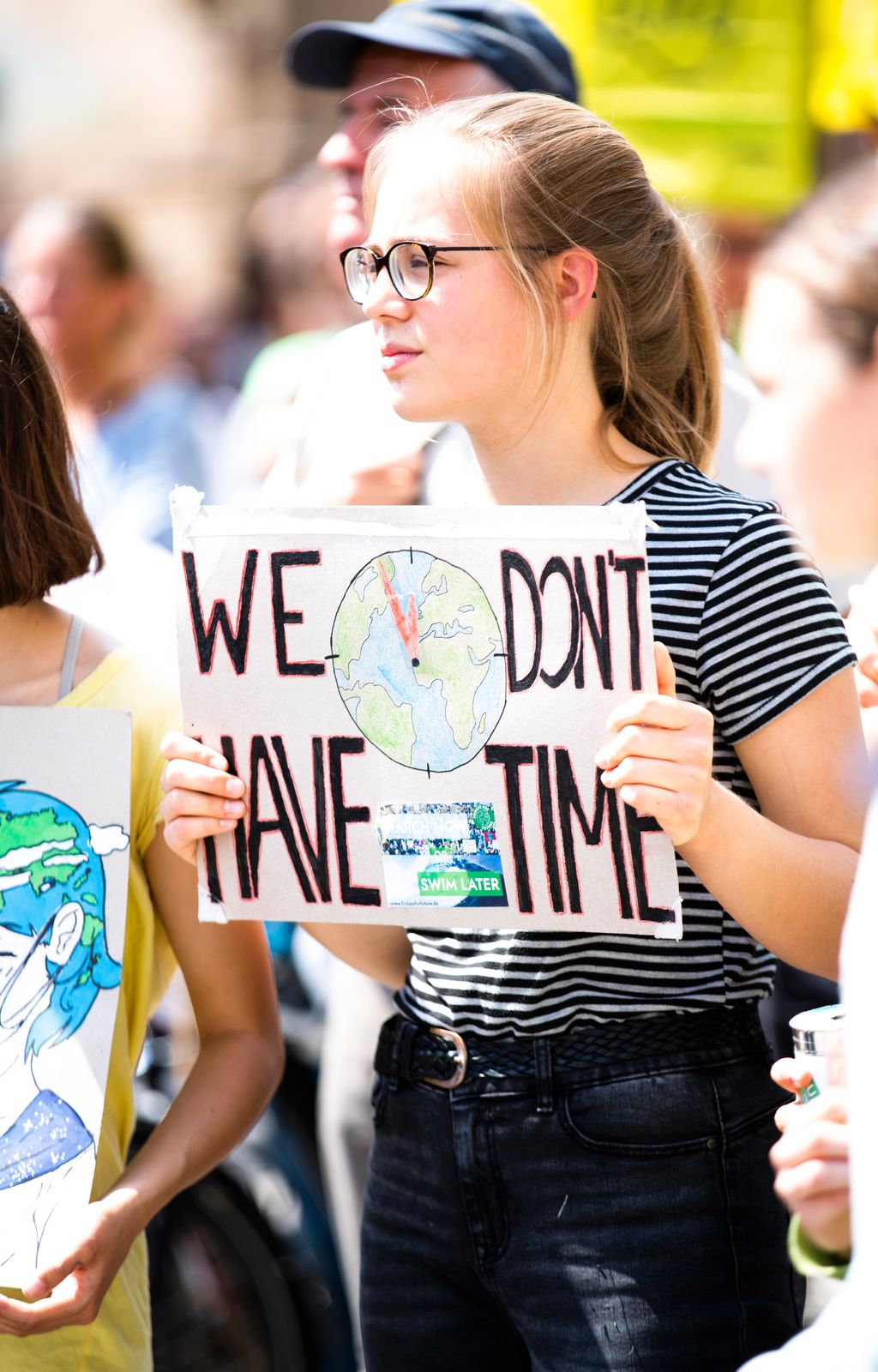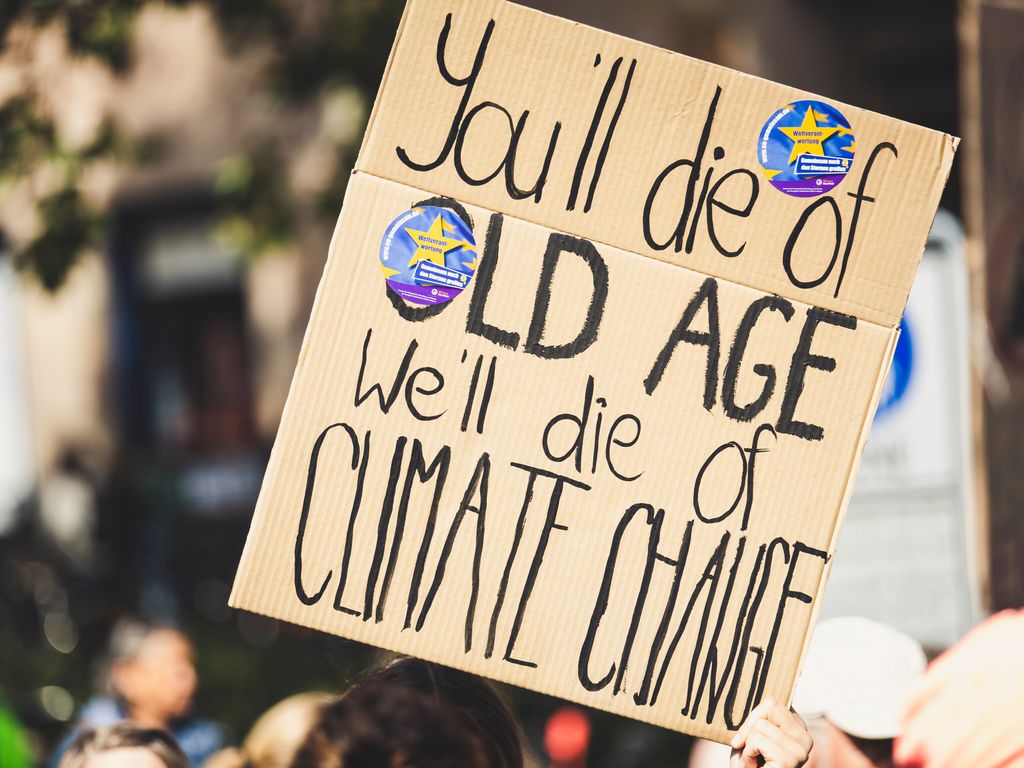5 Mins Read
One million young people around the world recently called on governments to prioritise climate change and execute the necessary measures to protect against the effects of global warming.
Young activists from the Youth Adaptation Network signed a call to action in which they urged governments across the world to intervene over the next decade ‘to prepare younger generations for the transition towards green and climate-resilient development’.
The youth also called for the topic of climate change to be discussed in education systems as well as for government to provide online educational resources to help communities adjust and adapt to the effects of climate change. Apart from this, they pushed for increased funding for projects that help in tackling the impacts due to climate change.
Extreme climate events compounded the challenges of responding to the pandemic in 2020. Evacuating populations from the path of cyclones, hurricanes with the threat of contagion. Covid-19 and climate disasters intersected to create a set of cascading risks, highlighting the interconnected nature of the impact of systemic shocks and the importance of a coordinated global and local response
Youth Activists in report
Climate-related disasters are predicted to have cost about US$650 billion globally in the past three years, totaling to more than 0.25% of total GDP. The UN has warned that damages associated with climate breakdown could soar to US$54 trillion by 2040.
Several measures that help in reducing communities’ vulnerabilities to extreme weather are comparatively cheaper to execute, for instance, early warning systems against storms, planting trees that help prevent flooding and landslides, and regrowing coastal mangrove swamps that act as a natural barrier to storm surges and sea level rises.
But sadly, very little funding is available for the same. A recent report by the UN Environment Programme observed that the world was badly lagging behind on the actions needed.
In addition, the youth urged for ‘a timely and innovative financing mechanism, and technical assistance to support youth-focused projects that build resilience and adaptive capacity among marginalised communities‘, and for support to youth in vulnerable communities looking to install adaptation measures.
According to the call to the action, “extreme climate events compounded the challenges of responding to the pandemic in 2020. Evacuating populations from the path of cyclones, hurricanes with the threat of contagion. Covid-19 and climate disasters intersected to create a set of cascading risks, highlighting the interconnected nature of the impact of systemic shocks and the importance of a coordinated global and local response.”

To address these concerns put forward by the youth, world leaders will meet at an online Climate Adaptation Summit to discuss ways on how to adapt to extreme weather, wildfires, and floods that are becoming a regular affair due to rise in temperatures. Led by Ban Ki-moon, the former UN secretary-general, key national leaders such as Angela Merkel, Boris Johnson, Narendra Modi and Emmanuel Macron are expected to attend.
As governments begin to invest trillions of dollars to recover from the pandemic, they have a once-in-a-lifetime opportunity to build a more resilient, climate-smart future – to build adaptation in the next round of fiscal stimulus. A coordinated green resilient infrastructure push with the right policy incentives could boost global GDP by 0.7% in the first 15 years and create millions of jobs
Patrick Verkooijen, Chief Executive of the Global Centre on Adaptation
Ban Ki-moon was nonplussed on the subject, stating that there is no vaccine to fix the changing climate. “As climate change impacts continue to intensify, we must put adaptation on an equal footing with [cutting emissions]. Building resilience to climate change impacts is not a nice-to-have, it is a must if we are to live in a sustainable and secure world.”
He added that efforts to repair the damage caused to economies by the pandemic were in danger of compounding the problem. “I am deeply concerned that in domestic stimulus plans, dirty measures that increase carbon emissions outnumber green initiatives by four to one.”
Patrick Verkooijen, chief executive of the Global Centre on Adaptation, agreed that it was time to redirect spending. “As governments begin to invest trillions of dollars to recover from the pandemic, they have a once-in-a-lifetime opportunity to build a more resilient, climate-smart future – to build adaptation in the next round of fiscal stimulus. A coordinated green resilient infrastructure push with the right policy incentives could boost global GDP by 0.7% in the first 15 years and create millions of jobs.”
Thousands of scientists from around the world, including four Nobel prize winners, signed a separate call to world leaders at the summit, demanding that adaptation be given first priority.
In a joint statement, the scientists didn’t mince words: “As our failed response to the Covid-19 pandemic has demonstrated, the world is simply not ready to face the investable impacts of our climate emergency. Unless we step up and adapt now, the results will be increasing poverty, water shortages, agricultural losses, and soaring levels of migration with an enormous toll on human life. We must avoid inaction where those who are not rich lose out, and cannot react in the timeframe necessary and without resources to make the required changes.”
In late December, the UN Secretary General’s Youth Advisory Group on Climate Change compiled a new report showcasing the need for greater investments in green jobs was at the top of the youth climate agenda for 2021.
Vladislav Kaim, a member of the Youth Advisory Group underlined the findings: “The report shows that the climate and health crises are unfolding together with the youth unemployment crisis, and there is a lot of concern that green jobs and a just transition are not being prioritized in COVID stimulus packages. Many young people are worried that progress on these fronts can be held back by greenwashing.”
The Youth Adaptation Network summary report, including other priority concerns and calls-to-action, can be viewed here.
All images courtesy of Markus Spiske/Pexels.



